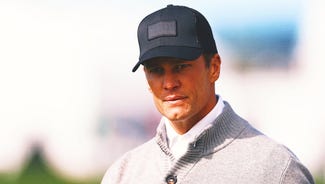
Brady ruling proves Goodell must alter his methods
Roger Goodell's critics hope the Thursday court ruling overturning New England quarterback Tom Brady’s “Deflategate” suspension is the beginning of the end for the NFL commissioner.
That may very well be the case down the road if team owners believe the ongoing headaches generated by Goodell’s missteps outweigh the record-setting revenues the league continues to generate under his watch.
What is certain: It has become abundantly clear Goodell can’t continue to govern in the Draconian fashion he has personally demanded without setting up the league for embarrassment.
This has happened once again as Goodell’s long-standing insistence on being the NFL’s judge, juror and jailer for player discipline continues to backfire. The latest examples came in the 40-page Brady ruling by a U.S. District Court judge.
Among the reasons for overturning the NFL punishment, Richard M. Berman claimed that Goodell dispensed “his own brand of industrial justice” when giving Brady a four-game suspension for allegedly scheming to illegally use underinflated footballs in last January’s AFC Championship Game against Indianapolis and then not cooperating with the league investigation that followed.
Berman wrote that it is the “law of the shop” to provide players with advanced notice of prohibited conduct and potential discipline if rules are breeched, which the NFL didn’t do with Brady or any other players beforehand.
Goodell didn’t follow past disciplinary precedent for at least one similar incident. Berman also didn’t deem as credible Goodell's citing the NFL’s mandatory four-game suspension for PED policy violations as the template for Brady’s ban.
In layman’s terms, Berman said Goodell can’t make it up as he goes along while using his own moral compass as a guide. The same goes for yelling, “Liar, liar, pants on fire!” at Brady and suspending him even though there’s ample reason to believe Teflon Tom knew Patriots underlings were doctoring his footballs.
Numerous examples of double standards and procedural errors were exposed by the Jeffrey Kessler-led NFL Players Association legal team in the Deflategate appeal that led to Berman’s decision. The fact this has repeatedly happened in other NFLPA legal challenges is Goodell’s greatest flaw during his tenure.
The players union pointed out Goodell’s mistakes in a post-ruling statement.
“This decision should prove, once and for all, that our Collective Bargaining Agreement does not grant this Commissioner the authority to be unfair, arbitrary and misleading,” NFLPA executive director DeMaurice Smith said. “This court’s decision to overturn the NFL Commissioner again should signal to every NFL owner that collective bargaining is better than legal losses. Collective bargaining is a much better process that will lead to better results.”
Such sentiment remains a pipe dream. The CBA clauses allowing Goodell to continue governing in his current manner remain in effect. All the NFLPA has now is a louder drum to create noise in trying to get a neutral arbitrator to hear disciplinary appeals rather than Goodell — and the commissioner remains tone deaf.
The NFL issued a statement from Goodell proclaiming that Berman’s ruling will be appealed “to uphold the collectively bargained responsibility to protect the integrity of the game.”
The league hopes a higher court will reinstate Brady’s suspension, either this year or for the 2016 campaign. However, the NFL will not seek a stay as this latest legal process unfolds. That means Brady is free and clear to start the season beginning with next Thursday night’s opener against visiting Pittsburgh.
If he hasn’t already, Goodell should privately ask himself whether he would be willing to change his heavy-handed approach. In doing so, the commissioner might want to look at a current head coach to realize self-scouting and swallowing pride to correct a professional flaw isn’t a bad thing.
Jason Garrett never wanted to surrender offensive play-calling responsibilities until pressured by Dallas Cowboys owner Jerry Jones. Garrett still took the plunge last year and became better as an overseer for the entire team rather than continuing to spend so much of his time in one area. The Cowboys finished with their best record (12-4) since Garrett took the reins during the 2010 season.
Considering all his other disciplinary goofs — “Bountygate” and the Ray Rice fiasco among them — Goodell ultimately may face a similar squeeze from Jones and his billionaire cohorts to change his ways if he wants to keep a job that paid him $79 million combined for 2012 and 2013.
Because of the wealth he has already accumulated, Goodell may not find the riches that come with being commissioner as important as holding onto his omnipotence. Goodell could very well conclude he can’t do his job effectively without it and decide, as late Cincinnati Bengals owner Paul Brown famously said about retiring players, to get on with his “life’s work” by leaving for another endeavor.
On his Twitter account, ex-New Orleans linebacker Scott Fujita (@Sfujita55) expressed that he hopes something has been learned “by players & league alike” from this latest round of legal sparring on disciplinary matters. Fujita, who was implicated and later exonerated for having a role in the “Bountygate” scandal, concluded by simply writing, “Let’s just do better.”
Because of Goodell’s ongoing hard-line stance, it will take a new modus operandi toward discipline — or a new commissioner.
“The commissioner’s responsibility to secure the competitive fairness of our game is a paramount principle,” Goodell wrote in his statement. “The league and our 32 clubs will continue to pursue a path to that end.”
Even if that path looks like it is leading Goodell to a dead end.






































































































































